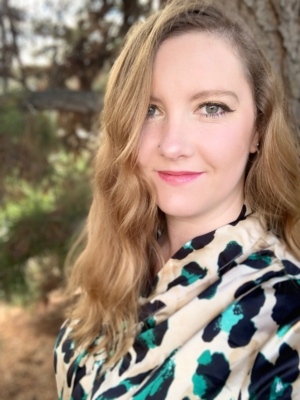Drowning in Numbers: How I Almost Drowned in the Ocean and Why America Continues to Drown in Covid-19 Cases
We decided on a whim to swim to the cove. Amanda and I had swum there before, but Amanda’s friend and Sam, the guy I brought, had not. The sun was low, but I said we’d make it there and back before dark. Nine houses sit between Sunny Cove in Santa Cruz and a harder to access cove near Black Point. Only a 220-meter swim, shore to shore. I had been an avid swimmer since childhood, and the others were fit, so I assumed the journey would be easy for us all.
This was my first mistake.
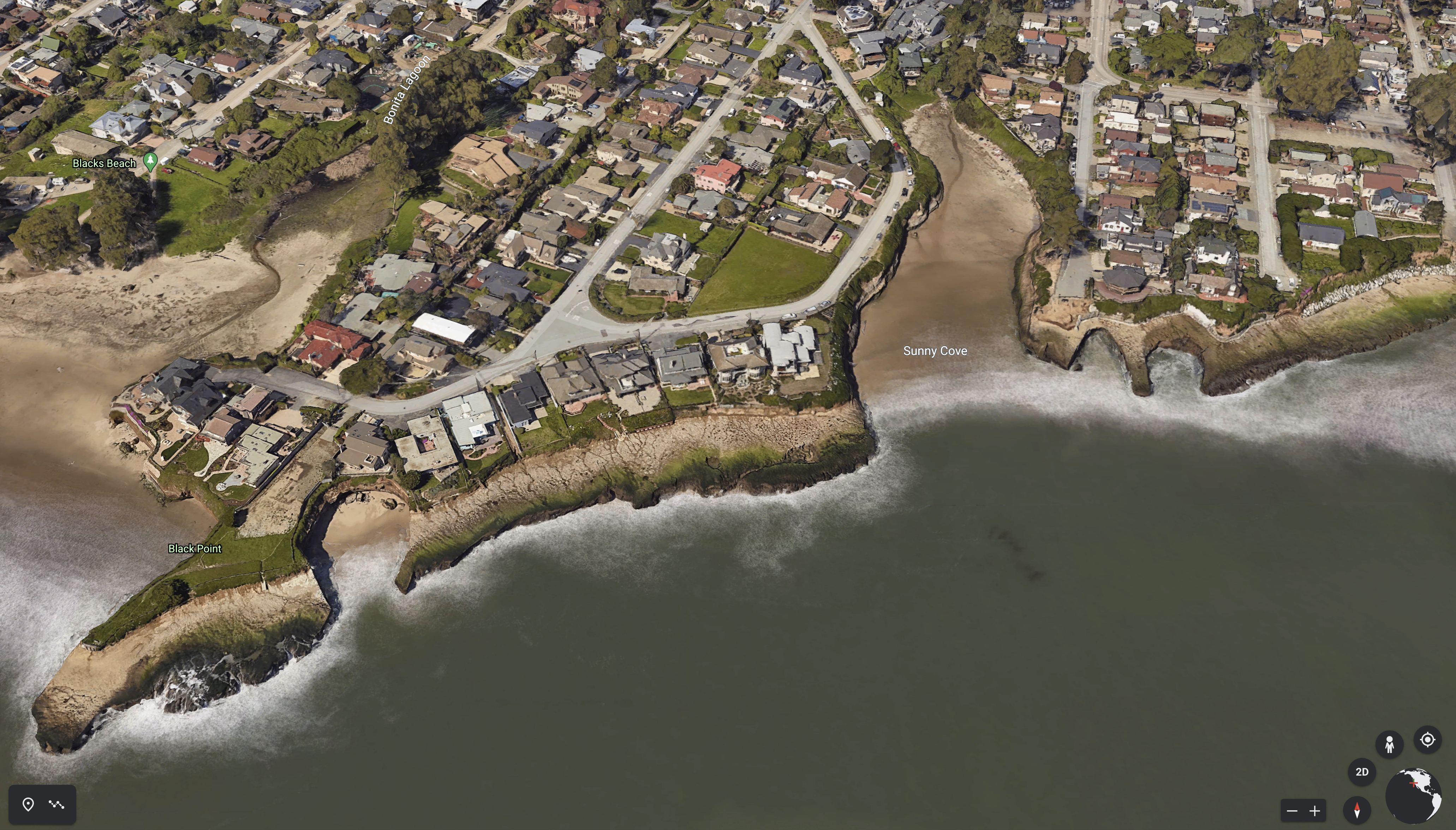
Credit: Google Earth
We dove into the water and fought the tide. We’d swim ten feet only to be knocked back twenty. Once, we debated turning around, but I convinced them the tide would work in our favor for our return. Swimming out against the current was sure to be the most challenging part of our trip.
An hour later, Amanda and I collapsed on the cove’s beach, and Amanda’s friend and Sam hunched near the shoreline, panting. Though all of us had a hell of a swim, Sam was purplish-blue and shook so violently, I heard his teeth chattering. I suggested we swim back, but Sam refused. He was too cold. During high school, I swam all times of the year. So, there’s a good chance this took place during winter.
As the sun tucked itself behind a cliff, we debated what to do. Soon, it would be too dark to swim back, and the rising tide had already eaten half our beach. On the east side of the cove, the cliff descends into the water. The rock is slippery and steep, and thousands of mussels cover its face. Sam decided to go that way. The rest of us would swim.
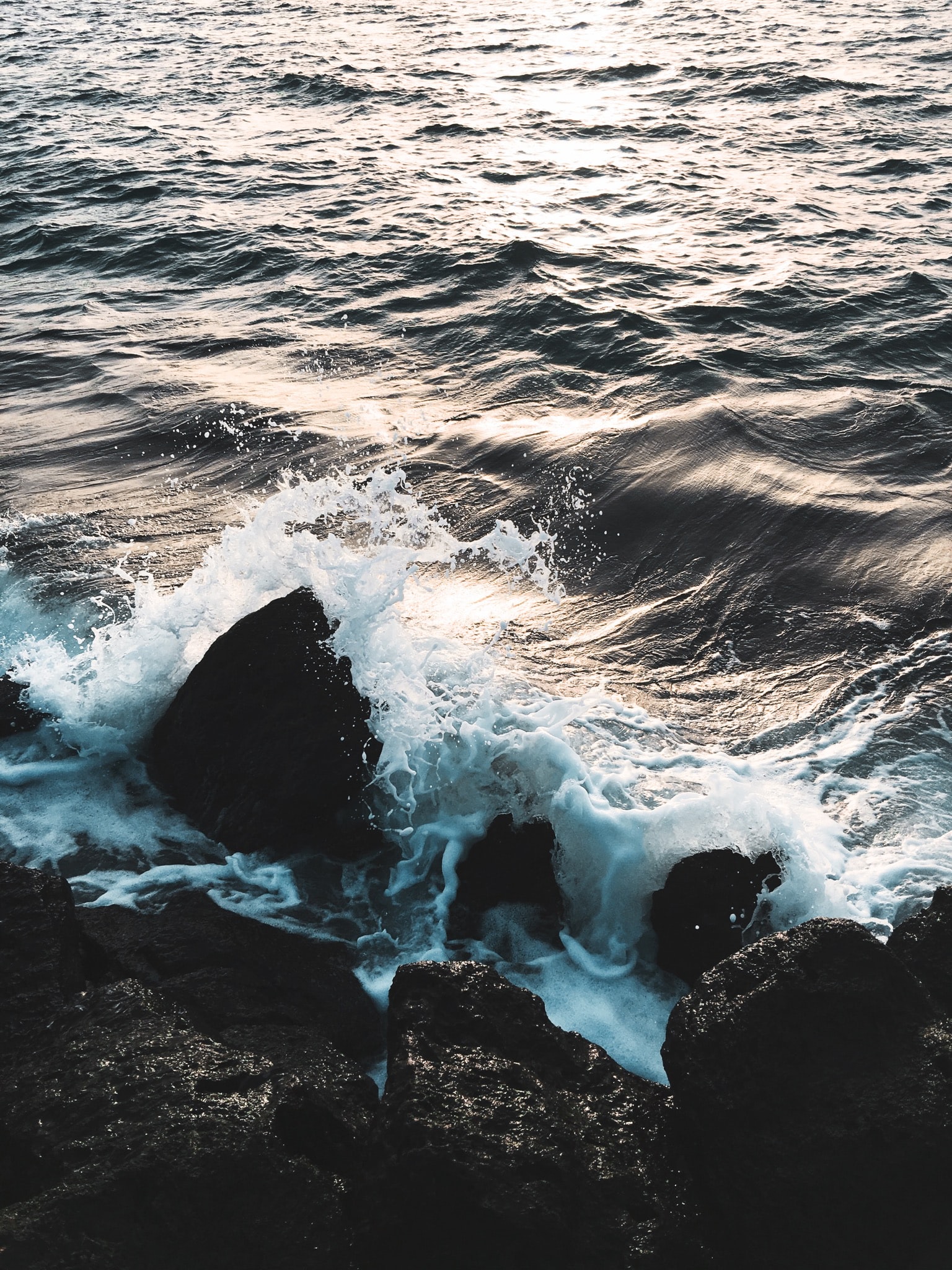
Credit: Unsplash
Our group entered the water, and Amanda and her friend went on. I hung behind to watch over Sam. He hoisted himself out of the ocean and started the slow journey up the rock. He crested the top and headed toward Sunny Cove. I lost sight of him and panicked. What if he had hypothermia and fainted on his walk back to the beach? I had brought him, so he was my responsibility. I also felt embarrassed. If he could climb the cliff, so could I.
Though the waves slapped higher with each passing minute, I figured I could make it up the cliff before the tide became unruly. So, I fought the waves, hauled myself out of the water, and began to navigate my way up the cliff through the shells.
That was my second mistake.
I hadn’t made it far when I heard a train-sized roar coming from the ocean behind me. I hung from my arms and glanced over my shoulder. A wave hit me, and I slammed into the rock and cut my chest on the mussels. I recovered, but the next hump of water was so tall, it would strike above my head. I had to jump.
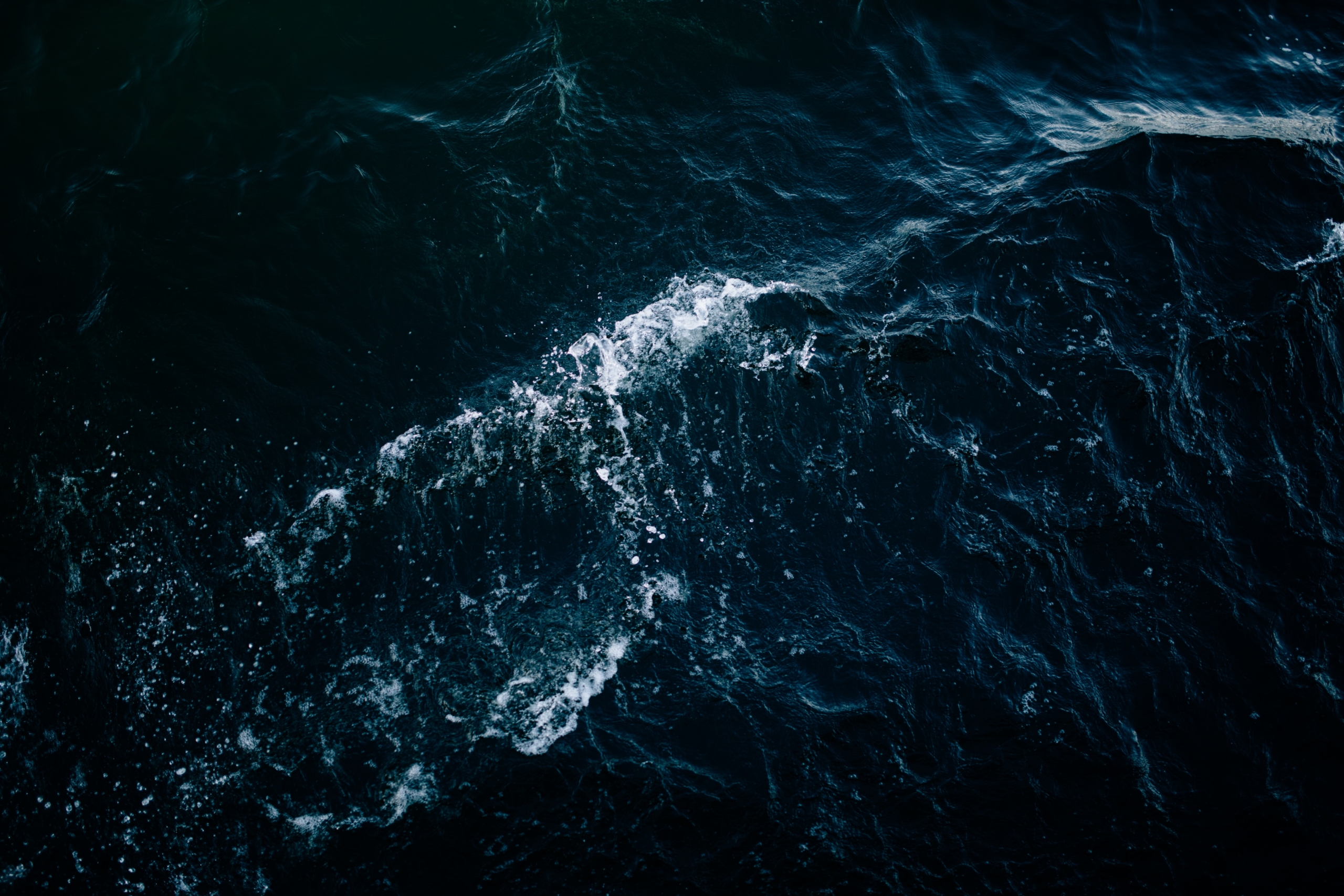
Credit: Unsplash
I shoved off the cliff right as the water touched my feet. I pushed far enough away, I hoped, to avoid the wave dragging me to the rock’s base. I was too late, or maybe I was just in time—a sharp coldness bit into my right side. I protected my head with my arms and was somersaulted inside the wave until my lungs heaved. When it spat me out, another hit. Hard.
I got thrashed about as I tried to swim away. I realized I was going in the wrong direction when I swam into the sand. My heart pounded as oxygen deprivation blackened my sight. Then I remembered an aphorism I must have learned from junior lifeguard training.
You panic, you drown.
With my eyes open, I floated underwater to regain my sense of direction. I spotted lighter color water and swam up. I resurfaced and after taking a few deep breaths, I made a smart decision and yelled for help. I was having a hard time swimming, so I dove under the waves to avoid them while I waited.
Help did arrive. Amanda and her friend told me later they’d heard me yelling and had fought the current to return. They flanked me, and the three of us swam together like we were playing a game of red rover. We had to. My right side was useless because my arm and leg refused to paddle.
The tide returned us home in ten minutes. Sam and a whispering crowd of beachgoers surrounded us. Half of my body was covered in blood and a salty mess pooled around my feet. On the beach, there was too much blood for me to see the cuts. Not until I showered at home did I notice the barcode on my right side. From shoulder to heel, the mussels slit my skin in short, delicate rows. Seems I hadn’t jumped quickly enough.
Later, I would realize how reckless I had been. And foolhardy. My rash decisions had endangered my life and the lives of my friends. But this hadn’t crossed my mind as I stood on Sunny Cove’s beach, planning our swim to the cove near Black Point. Though swimming in the ocean is inherently risky, I considered it a manageable danger. I imagine this is what Annie Dillard meant when she wrote: “I had thought that danger was the safest thing in the world, if you went about it right.” But my near drowning experience taught me not to underestimate the ocean’s power. And to take better care of my safety.
* * *
Last April, I postponed my wedding because of Covid. Bringing people in from various counties would be dangerous, so I told my family we would see them in a few months when it got better. I told my students the same thing when our school closed. Before the Covid-19 pandemic, the last time I feared for my safety was that day at the cove. But now, a year later, fear has become the backdrop of my life. I instinctually move six feet away from people, and masks have become so commonplace, they’re a fashion accessory. After living with fear for so long, I have become numb to it. But I cannot underestimate the danger we still face in America.
The US continues to have record-breaking cases of Covid-19. My home state, California, recently became the first to “record more than two million coronavirus cases.” While there are many factors to consider when discussing Covid, counties and states that inconsistently enforce the recommended safety guidelines are the largest issue. More concerning still is what can happen when those guidelines are enforced.
Not long ago, I asked a grocery store supervisor why their store wasn’t enforcing the mask policy. There were a dozen or so mask-less shoppers in the store at the time. She said when they had tried to enforce the policy on previous occasions, some customers had hit and spat on them. I was horrified and wanted to know if they had called the police. She assured me they had called, but the police wouldn’t come any more “for that.” Their store had decided not to enforce the policy because they were concerned for their employees’ safety. Understandable.
Our beliefs about social distancing and mask expectations have been “lackadaisical” in part because we have found many justifications to ignore guidelines. A person I know claimed he should be allowed to go mask-less to sporting events because it was “his life” after all. A daughter of a friend of mine chose not to put off her wedding. Though all fifty-something guests began the night with masks on, my friend explained, “by the end of the night, you know.”
I, too, am guilty. I have dined at restaurants instead of getting take-out. Doing it outside and wearing my mask doesn’t excuse my behavior. Eating at restaurants won’t stop the virus’s spread. But finding a reason to be the exception to the rule is the easy part. Accepting responsibility is not.
Making wise decisions has also been difficult because our previous administration told us there wasn’t any danger. Trump said, “99 percent of coronavirus cases were totally harmless” (#809). He sought to “slow down” testing because, obviously, “When you do testing…you’re going to find more cases” (#90). Even after Trump caught Covid, he told us, “Don’t be afraid… Don’t let [Covid-19] dominate your life.” But we can’t believe things will just “go away” (#854), nor can we underestimate what we still have to learn about this virus. Spreading misinformation breeds dangerous beliefs, which may result in people not protecting themselves and others. Recently, I warned my fiancé against using a charger outlet at a mechanic’s shop because it wasn’t sanitized. Another customer told us not to worry about using it because “Covid isn’t real.”
Although, I’m not surprised some have chosen to dive under the truth. What we are experiencing is horrifying, in local and global ways. And we’ve lacked leadership. Instead of uniting us on a shared path to fight Covid-19, our previous administration politicized this virus, divided the country, and put our lives at risk. And we’ve lost more than our sense of direction. We’ve lost our teachers and nurses and mothers and fathers and sons and sisters and neighbors and friends and lovers and people we’ve never met, but whom we love anyway because they’re Americans like us.
As of today, January 22, 2021, 404,689 people in the US have died from Covid.
* * *
A few weeks after I almost drowned, Amanda, her friend, and I found ourselves at a different beach. The tide changed in an instant. The soft, rolling waves transformed into ten-foot swells that pounded the coast. We watched in horror as people screamed and frantically swam for the shore. There was enough time for the lifeguard to raise the red flag, but not enough time to get everyone out. A woman and her child were caught and dragged past the break line. The tide pulled them farther and farther out to sea. People shouted for someone to do something. The one lifeguard, who looked about seventeen, seemed as scared as I.
I stepped forward but stopped. If I went out there, I would make things worse. Even professional swimmers can be drowned by those they’re trying to save. And junior lifeguarding didn’t qualify me as a professional. So, I stood on the shore, helpless.
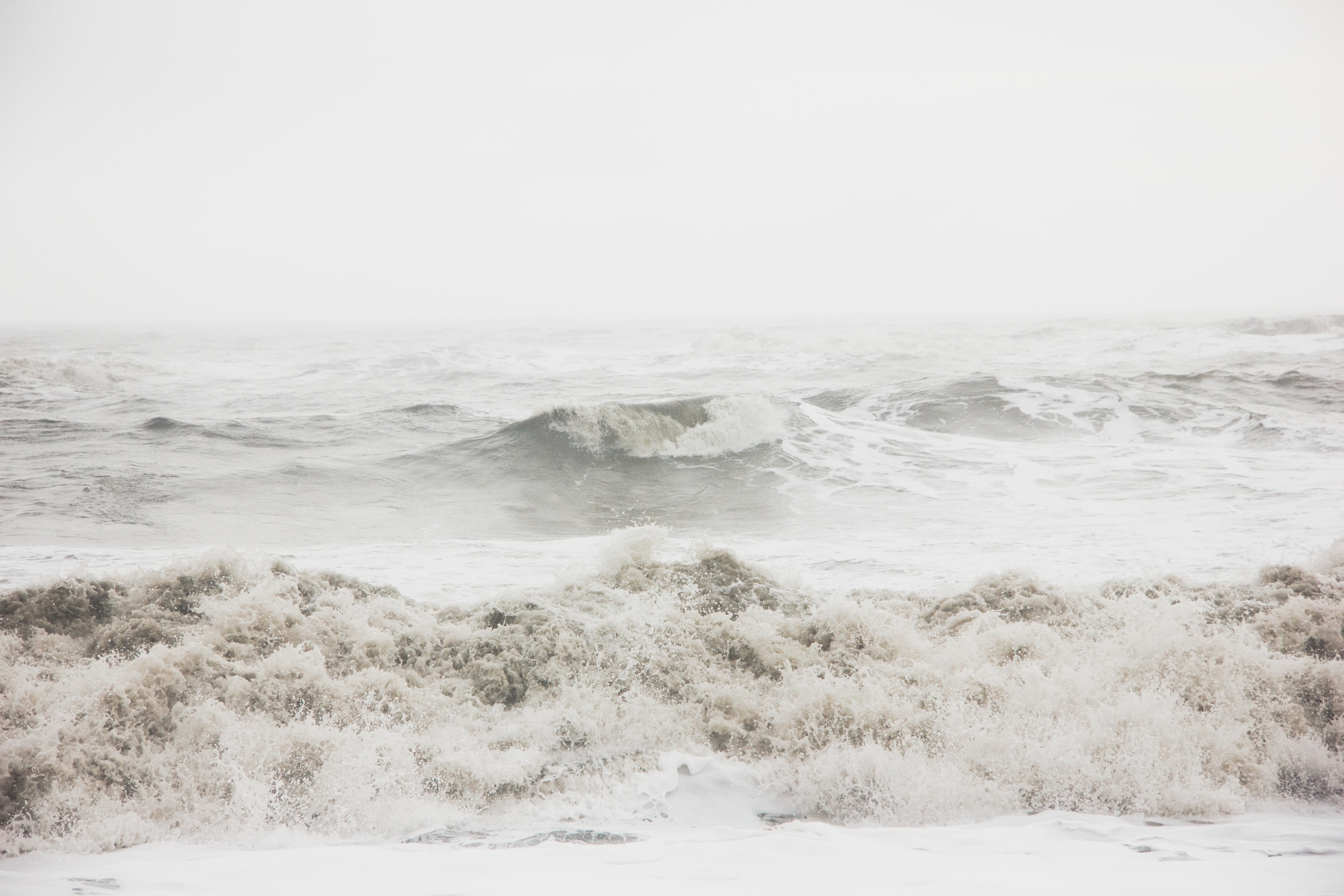
Credit: Unsplash
Thankfully, Amanda’s friend was a strong swimmer and reckless. He dove off the rock jetty, swam for the woman and her child, and pulled them safely to shore. I wish I could remember his name because, to this day, it’s the bravest thing I’ve ever witnessed. And I can admit it now, some seventeen years later, there was a jealous twinge in my heart. Of course, I would have loved to have been the rescuer—to believe I was within my depth of knowledge and experience. But I wasn’t. And with Covid-19, we’re still not.
We’re in uncharted waters, facing a new and dangerous adversary we can’t underestimate. And yet, we’re not helpless. As we step into the new year, we can learn from our past mistakes. Healing our divided nation will take a lot of work from all of us. And we may need what Colleen Murphy refers to as transitional justice. But we have an opportunity to do right by each other and improve the outlook for our future. And this starts by looking back at the choices we’ve made. As Murphy puts it: “This impetus to dig deep into our past is one we should heed: as a society we need to look back first if we are to be able to move forward.” Only in this way can we make informed decisions and improve our future. Kamala Harris says, “Now the hard work, the necessary work, the good work begins…to unite our country and heal the soul of our nation.” Because though we may not be out of the water yet, if we open our eyes, we will regain our sense of direction.
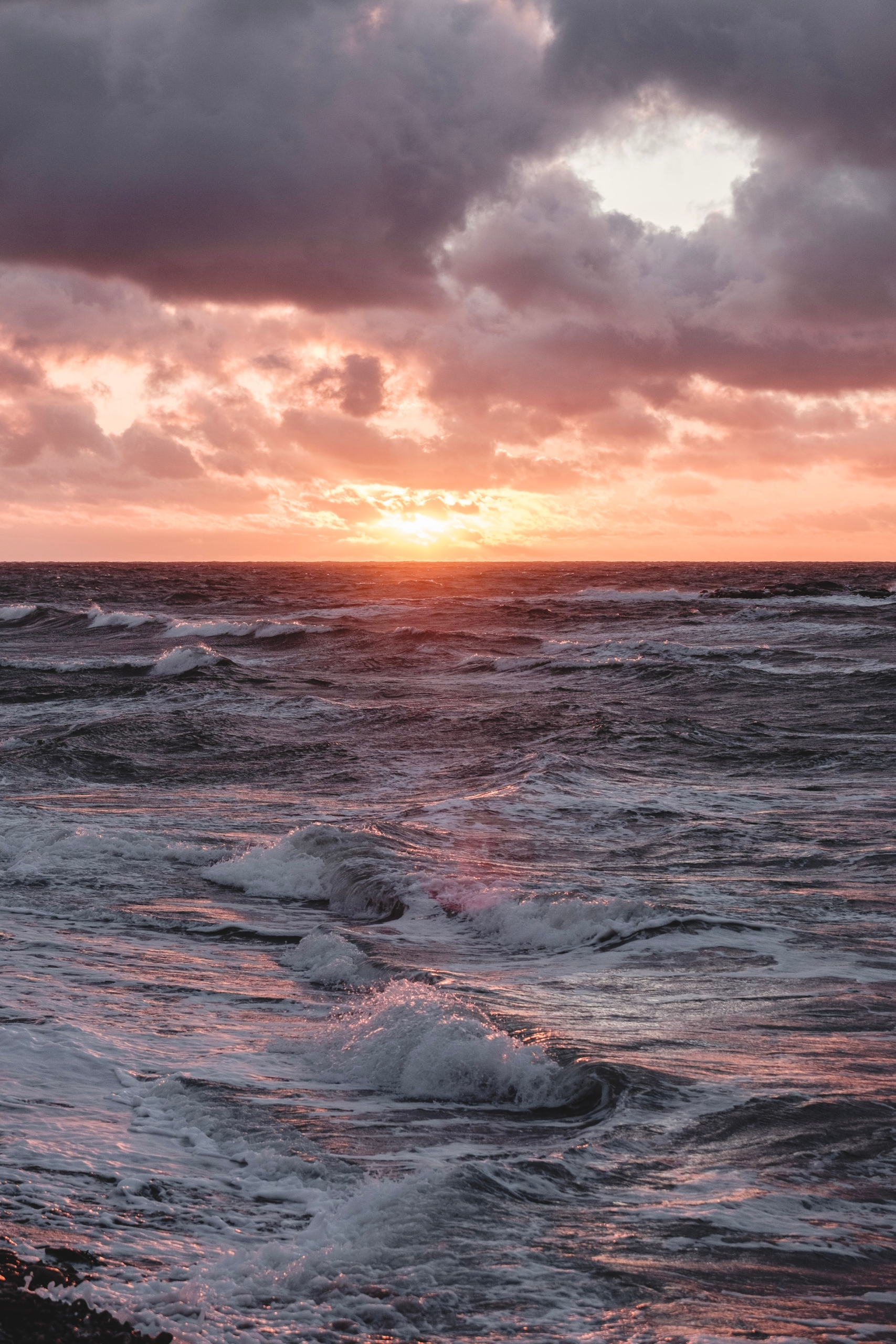
Credit: Unsplash
Ashley Russ is a current MFA candidate at Antioch University. She received her BFA in Creative Writing from UC Riverside. Her work has appeared in UC Riverside’s Mosaic Art and Literary Journal and in Endurance News. She resides in California where she teaches, rides horses, and is working on her first novel. Twitter: @TheWritingRuss

